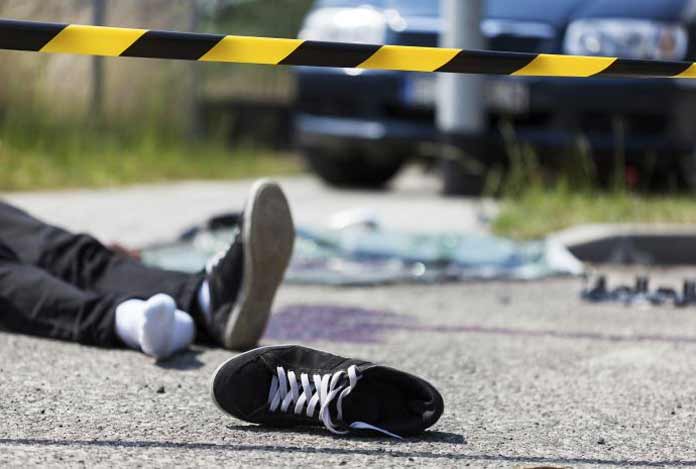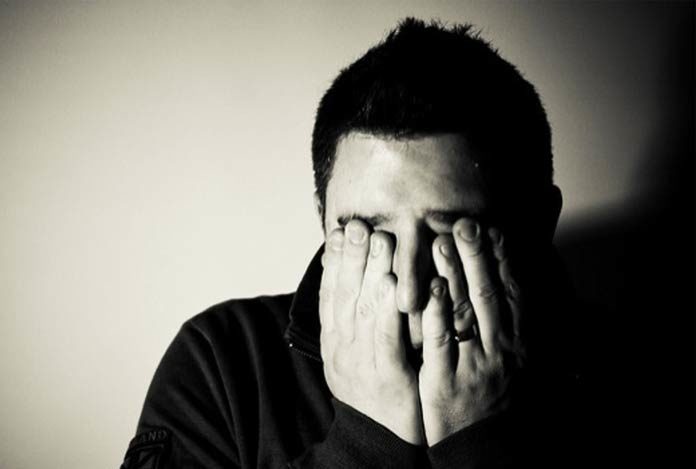
Post-Traumatic Stress Disorder (PTSD) is a mental condition that results in or develops after experiencing a horrifying, threatening, serious and dangerous event. Feeling terrified after or during traumatic events is a normal phenomenon, and in order to overcome a dangerous situation, the body exhibits a fight or flight response. This is done by the body to protect itself from the danger or to avoid the unpleasant circumstances.
While most people recoup quite naturally from the initial symptoms, there are a few, who do not recover within a specified period of time and may later get diagnosed with PTSD. People, who have PTSD feel scared or stressed even when there is nothing to worry. If the symptoms stay for several weeks, then it may not be PTSD. However, if they persist more than that, then it might be a case of PTSD.
This condition was first seen in war veterans. It dates back to the time of ancient Greece. It is also known by the name, shell shock; given during the World War I. During the World War II, it was called “war neurosis.” Likewise, in the American Civil War, it was called “soldier’s heart.”
As already mentioned, PTSD cases was initially observed in soldiers, who faced distressing conditions while they were in their trenches. People under stress from traumatic events may not develop PTSD. In fact, people, who experience trauma, which is interpersonal like abuse during childhood, have greater likelihood of developing PTSD as compared to those, who experience trauma like car accidents or loss of life of loved ones.
In the U.S., around 3.5% adults get detected with PTSD annually. About 9% people develop PTSD at some point of their lives. In the rest of the world, the percentage of people getting affected with PTSD is 0.5% to 1%. Women have greater likelihood of getting affected by the condition as compared to men.
The name post-traumatic stress disorder came into use in the 1970s. It was recognized officially by American Psychiatric Association (APA) in 1980. PTSD is a debilitating condition. Research has established that PTSD in military personnel may be due to brain injury or damage of tissue caused during war.
People with PTSD can be severely depressed or anxious for months or years after the event. Trauma survivors having PTSD may have problems with maintaining relationships and friendships. Around 7 million Americans above the age of 18 have PTSD. Nearly 67% of people, who have been subjected to mass violence have a greater chance of developing PTSD as against those, who have experienced trauma like natural disasters.
Types and Symptoms of PTSD
Types of Post-Traumatic Stress Disorder:
PTSD is of five types. These are discussed below:
- Normal Stress Response: It occurs when adults get exposed to a traumatic event. As a result of the traumatic event, people experience emotional numbing, losing touch with reality, not being able to form and sustain relationships. Recovery may be attained in a few weeks. In such cases, group debriefing is a useful strategy. It starts by describing the event. Thereafter, emotional responses of the individual are evaluated and then coping methods are identified.
- Acute Stress Disorder: Within weeks of a traumatic event, an individual may develop an anxiety disorder, known as acute stress disorder. It can last anywhere between 3 days to about a month. It can be caused by experiencing events like death of a loved one, injury to oneself or others and threat to physical integrity.
- Uncomplicated Stress Disorder: It involves repeated and continued exposure and experiences of trauma. In this type, a person detaches him/herself from people and situations. Therapies that can be beneficial in treating this condition are group, psychodynamic, cognitive behavioral therapy (CBT) and combination approaches.
- Co-Morbid PTSD: This type is much more common than uncomplicated PTSD. Generally, PTSD occurs along with at least one other psychiatric disorder like depression, alcohol abuse or any anxiety and panic disorder. Both the conditions must be treated together for better outcomes. This is particularly true in case of PTSD and alcohol abuse. In order to treat this condition, the same line of treatments can be used as in case of uncomplicated PTSD. However, carefully managed treatment measures must be adopted for additional condition(s).
- Complex PTSD: This occurs in people, who have been exposed to traumatic situations and circumstances for an extended period of time. It occurs as a result of repeated trauma like abandonment by a care giver or having poor interpersonal relationships.

Symptoms of PTSD:
Some common symptoms of PTSD are as follows:
- Memories of the incident may keep coming back
- Emotional numbness and avoiding people, activities and places that remind about the trauma. For instance, in case of a car accident, one may stop driving. If it is a case of natural disaster, one may stop watching movies related to earthquakes or sharing their point of view about the same
- Avoid seeking help about the condition as it may require to explain about the event or speak about the symptoms, which might be dreadful for a person with PTSD
- Staying away from relationships and not sharing very loving or positive feelings with other people
- It may be difficult to trust others and the world may look like a dangerous place
- Sudden bouts of anger and irritation
- Difficulty in concentrating and sleeping
- Fear of loud noises
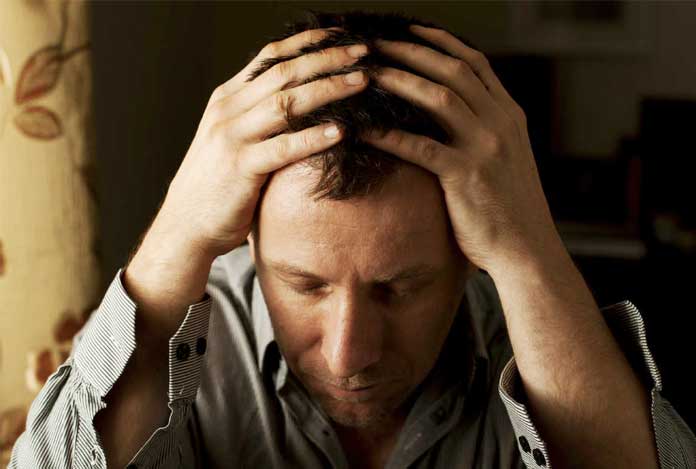
Risk Factors for Post-Traumatic Stress Disorder
Following are the risk factors which may be divided on the basis of the event and characteristic of the individual:
- Experiencing abuse, disasters, accidents and similar events
- Witnessing a family member experiencing dangerous events
- Having a history of physical or sexual assault
- Getting hurt or seeing another person getting hurt, or seeing a dead body.
- Women have greater likelihood of having this condition as compared to men
- Genes are also responsible for making some people more prone than others to develop PTSD
- Childhood trauma
- Little social support after the occurrence of a traumatic event
- History of substance abuse or mental illness
- Psychological conditions like low self-esteem, depression, anxiety make a more susceptible to have PTSD.
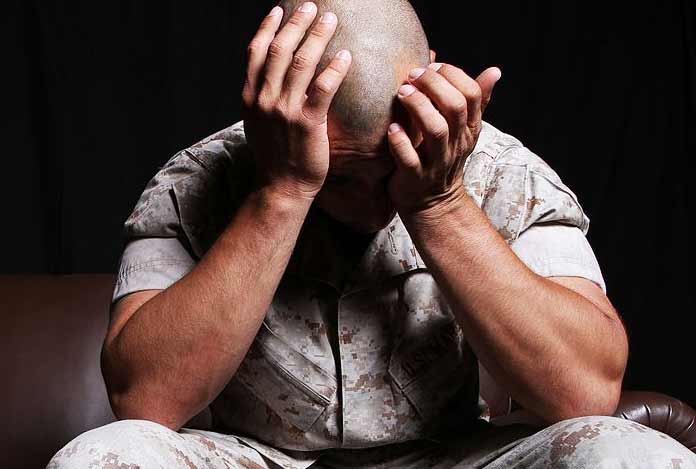
Do I have PTSD?
PTSD affects day-to-day life. While anger and irritation are common symptoms of PTSD, it also affects appetite and sleep. To be precise, it affects almost every aspect of the life of a person; from life at home to his employment situation and interaction with others. This is how PTSD presents itself. However, your symptoms could signify a number of other conditions that are different from PTSD. It could be anxiety, depression or sleep disorder.
Hence, it is to be noted that just because someone is struggling with daily chores, does not mean he/she has PTSD. Sometimes, one feels sad, irritable or angry, but is able to clear up the thoughts in no time, which is not PTSD.
To correctly diagnose PTSD and differentiate it from other mental conditions, one must consult a mental health professional.
Causes and Prevention of PTSD
Causes of PTSD:
PTSD can occur after having a distressing, scaring, or a continued stressful experience. Some events that can lead to PTSD are:
- Personal assaults that are violent in nature, sexual abuse, and incidence of theft and robbery
- Road Accidents that are serious
- Violence or neglect
- Seeing events like deaths and loss of a loved one
- Military combat and wars
- Attacks by terrorists or being held as a hostage
- Natural Disasters like earthquakes and floods
- Diagnosed with a life-threatening situation
- Severe injury
- Traumatic childbirth or witnessing traumatic birth
- Being abused, bullied or harassed
Thus, PTSD is triggered when a person sees an event, which is traumatic like war, natural disaster, or any other situation that results in the feelings of helplessness or fear.
Prevention of PTSD:
There are several ways with which post-traumatic stress disorder can be prevented, even after exposure to a traumatic event. These are discussed below:
Debriefing after a traumatic event is quite a popular strategy. In case of children, trained therapists can be appointed to help them deal with the trauma. The people are guided by activities and discussions to help them release negative energy that had developed during the traumatic event. This method can even be used for individuals, who have been through car accidents, divorce of parents and loss of loved ones.
Parents can use techniques like play activities, exercises related to building trust and art projects for prevention of PTSD in kids.
Major hospitals in the U.S. employ life specialists. They reduce medical trauma by acquainting people with hospital and equipment used for medical procedures. They also educate the family as to how to take care of the people who have experienced trauma.
Adults must take care of children, who have been through a traumatic event. They can rub the arm of the child, talk to them and play some relaxing music. This will prevent disassociation, which can lead to PTSD.

Diagnosis and Tests for PTSD
In order to diagnose PTSD, your doctor may ask for:
- A physical examination for checking medical problems that may be causing the issue.
- A psychological evaluation to discuss about signs and events that trigger the symptoms.
While there are no predictive tests that can truly diagnose PTSD, some specialized interviews can be employed to help diagnose PTSD. These interviews consist of a set of questions that an interviewer asks to a patient with symptoms of PTSD.
- Clinician Administered PTSD Scale: It is a very widely used form of PTSD interviews. The questions test you and ask you how often you have symptoms and the intensity is also to be described.
- Structured Clinical Interviews for DSM: It is also a widely used form of interviews. This test can assess many mental disorders, including PTSD.
- Other Interviews: These include PTSD-Interview, Anxiety Disorder Interview and PTSD Symptom Scale Questionnaire.
- Questionnaires that are Filled by Self: These take lesser time than interviews and is also less costly. PTSD Checklist, scale to measure the impact of events, Post-Traumatic Diagnostic Scale

Treatment and Care of PTSD
Treatment of PTSD:
For PTSD patients to be able to gain the lost control over their lives, they must adhere to the treatment of PTSD. The first line of treatment is psychotherapy. It must be followed by medications. Combination of treatment methods will help you by teaching you skills to regulate your symptoms, learning to self-manage and treat the symptoms should they appear again, making you able to think positively about yourself and the world in general.
Psychotherapy:
There are many types of psychotherapy also known as talk therapy. It can be to treat children and adults having PTSD. These include:
- Cognitive Therapy: This works by changing the cognitive patterns and help the person think in a particular way. For example, it enables one to change the negative thought patterns which keep one stuck, like negative self-beliefs and risk of trauma affecting life.
- Exposure Therapy: This type of behavioral therapy helps the affected person face situations that he/she may find frightening, so as to enable him/her to effectively cope up with the situation. It is particularly useful in cases of nightmares and flashbacks.
- Eye Movement Desensitization and Reprocessing (EMDR): This technique makes use of eye movement with exposure therapy for the processing of traumatic memories and changing the reaction.
Other options like individual therapy or group therapy are also known to be effective in treating the symptoms of PTSD. Group therapy gives you a chance to connect with people undergoing similar experiences.

Medication:
Some medicines can ease away the symptoms of PTSD:
- Anti-Depressants: These help in managing the symptoms of depression. They also work to boost concentration and get better sleep. FDA has approved SSRIs like sertraline and paroxetine for the treatment of PTSD.
- Anti-Anxiety Medicines: These drugs relieve anxiety and associated conditions. Use these drugs only for shorter durations as body starts becoming resistant to such medications when used over long term.
- Prazosin: If a person has insomnia with recurring nightmares, a drug, known as prazosin may be useful. However, it has not been approved by FDA, but it has been found to reduce nightmares in people with PTSD.

Caring for People with PTSD:
A person having PTSD may not seem like the person you know and may behave completely differently like being easily irritated or angry. PTSD can affect your emotional health as knowing that someone you love has PTSD may not be very easy on you. In such a case, what all you can do is discussed below:
- Know about PTSD: This will make you more sensitive to what your loved one is going through and you will be more responsive to their needs.
- Offer Help When They Need: Know that your loved one may not accept your help when you extend your helping hand. Let your loved one know that you would be ready to help when they feel so.
- Join them in Their Visits to Doctors: This will help you be aware of the treatment process and enhance your knowledge about their condition.
- Lend them Your Ear: Tell your loved ones that you would be ready to hear their story when they want to share it. Don’t force them to talk about the condition as they may not be comfortable doing so.
- Club Together and Celebrate Events: If there is anything special, take your loved ones along and celebrate with them. Plan opportunities in which you can participate together.
OTC Medications and Self-Management Methods for PTSD?
Generally, there are no over the counter medications available for the treatment of PTSD. Medication is prescribed by the doctor with a comprehensive plan for treatment which includes other alternative therapies like CBT, talk therapy etc. Self-medication with over the counter drugs can be dangerous. You must definitely consult your doctor before starting treatment of PTSD. Taking wrong medicines in wrong dosages can be dangerous. And it will worsen the symptoms of PTSD.
Self-Management Methods of PTSD:
For managing the symptoms of PTSD, a patient can seek support from family and friends. One can even register him/herself in a support group after the traumatic event. Affected person can even take the PCL test, i.e., Post-traumatic Stress Disorder Checklist. Filling out the checklist won’t take much time. It will only help one determine the nature and extent of the symptoms, and will give the person an idea whether they should seek help of a doctor. The symptoms will improve gradually and not immediately, so one must have realistic expectations.
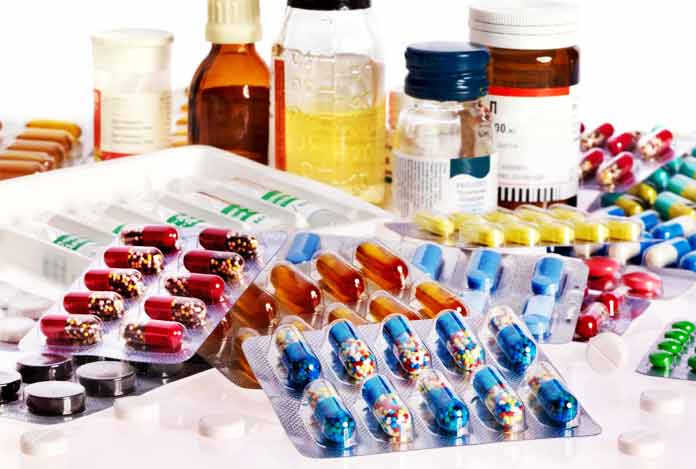
Natural Ways to Cure PTSD
- Green Tea: Green tea is known for providing benefits to the mind and the body. It soothes the nervous system and brings about a calming and relaxing effect. If you add green tea extract to your everyday diet, you are most certainly on your way to reducing the symptoms of PTSD.
- Kava Root: Kava root is a sure-shot remedy to treat panic attacks and symptoms of other mental health conditions like PTSD. It is a very strong muscle relaxant that is available in many forms like tea, tinctures and capsules.
- Skullcap: Skullcap has been used for a long time to manage disorders of the nervous system. It is known for easing away the symptoms of PTSD, and prevent anxiety and other related conditions.
- Herbs like Dong Quai: PTSD not only affects the mental health, but also the body. It may lead to overactive adrenal glands and a hypersensitive nervous system. Herbs like Dong Quai regulate the adrenal glands and prevent moments of anxiety and panic by keeping the nervous system in a balanced state.
- Chamomile: It has been long used for soothing the nervous system. It lets you get rid of negative thoughts and helps in relaxing the nerves.
- Stinging Nettle: This herb is also used in the treatment of PTSD. It regulates the adrenal glands by controlling the production of adrenaline. This hormone is released during situations of anxiety and stressful events.
- Valerian: It is a very effective sedative and quite often used in the treatment of PTSD. People with PTSD usually have nightmares, insomnia and other conditions related to sleep. Valerian helps remove negative thoughts and provides restful and healthy sleep.
- Counseling: It is understood that talking about painful experience may not be easy for the affected person. But, it has been established that sharing thoughts, whether with a trained counselor, trustworthy friend or family member can help a PTSD patient build a strong support network and thus, enables the person to work his/her way through the troubles.
- Aromatherapy: It makes use of a number of different essential oils and other volatile compounds. Aromatherapy is a simple and very effective remedy. It has soothing and sedative effect, which calms the nervous system.
- Exercise: Exercise is the easiest and simplest method to fight the ill effects of PTSD. Exercise produces natural feel-good hormones, called endorphins. This reduces the levels of stress hormones, making it easier to sleep and relax.
- Emotional Arousal should be Reduced: Situations that are highly traumatic or emotional like accidents, fights and romantic engagements can bring about flashbacks and lead to mental states that are highly charged. Remaining calm under such circumstances is very important in naturally treating PTSD.
- Avoiding Symptom-Inducing Situations: Watching movies or events that could make a person with PTSD relive the trauma should be avoided. Anything that reminds one of your bad experience can worsen the condition. So, it is best to avoid such reminders.
- Improving Engagement with Social Contacts: People with PTSD usually cut out on social contacts. This is because they are fearful that a trauma can happen, so they tend to avoid maintaining social contacts. This further aggravates the situation. Hence, to keep the situation in check, PTSD patients should engage in social situations and try to cheerfully communicate with others.

Health Tip by Experts
One must accept the fact that he/she is experiencing the symptoms of PTSD. However, what more important is talking about it. This is crucial for better outcomes.

